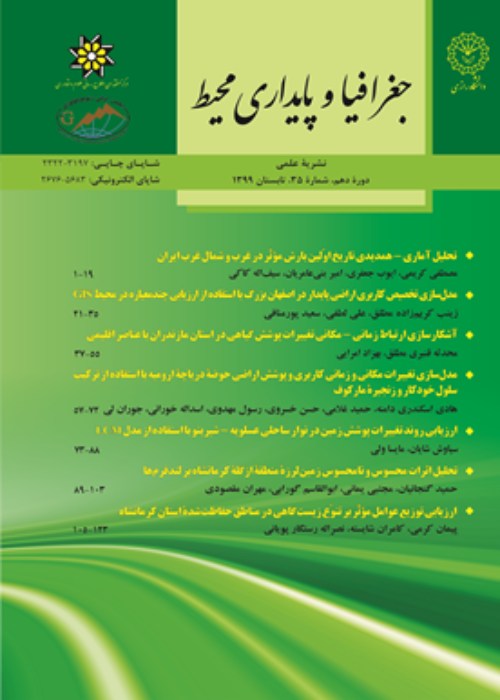The Assessment of Participatory Scenario Planning in Future-Study of the Environment in District 1, Tehran City
Encouraging people to think about the future is a participatory approach to the main element of scenario planning. Today, research into the future and the process of scenario planning is widely used by local stakeholders and communities (Ducat, 2017). By entering a new field on social, economic and environmental issues, transformations in the urban environment have reached their maximum, and predictions in such a situation are always in error. The transition from traditional planning to new planning approach has been one of the most important changes in urban planning over the past several decades (Rahnema and Maroofi, 2015: 45). In such a situation, the use of traditional approaches to planning is not effective (Shirvani et al., 2017). Participatory scenario planning contributes to create common vision, common knowledge and increase collaboration between individuals and local communities (Palomo, 2011). Considering the importance and necessity of research, the main goal of this research is not only to study the urban environment scenarios in Tehran, region 1 but also to evaluate the main actors, citizens in interpreting the future status of the environment of this region and assess the role of citizens in the planning and environmental management.
The study area is the district 1 of Tehran municipality. As the current paper aims at determining the possible scenarios of the environmental situation and the role of stakeholders in the future, quantitative and qualitative methods have been used to collect and analyze the data. Data gathering was carried out as field studies. First, spatial data were collected from official centers of the country and the related departments, including the Statistical Center of Iran and the Mapping Organization, then to fieldwork has been used to collect supplementary information through questionnaires. The statistical population of this research is the all residents of the district 1 in Tehran. The method of probabilistic sampling is of classing type.
The results of the research show that "optimal management of urban land use", "citizenship participation and increasing the role of local communities" in the environment of the region have the highest impact and the greatest uncertainty, and future forces for environmental situation of the region. Therefore, these two propulsive forces were selected as the main axis of scenario analysis and four scenarios were developed in a cooperative way for the future. The data analysis of the questionnaire shows that the significance level for the three indicators of citizenship awareness, environmental behavior and citizenship accountability among the two research groups is less than 0.05, which indicates that the participants in the compilation environmental scenarios are environmentally friendly and require themselves to do the routines in accordance with the protection and promotion of the environment of their habitat. In contrast, those who do not know the future environmental prospects of the region in relation to the principles Ecological citizenship did not require themselves to conduct environmental behaviors. Considering the fact that citizens involved in participatory scenarios in terms of citizenship environmental awareness indicators, citizenship accountability and environmental behavior were significantly different from those who were not involved in the participatory scenario process, but in the area of citizen cooperation with local institutions Preservation and promotion of urban environment has no significant difference revealing that the institutional problems and the gap between management institutions in the area of urban environmental protection in the region is very high, and only participatory scenarios cannot improve this indicator. Governing the urban environment also requires leaders to enhance institutional capacity. Participatory scenarios can provide citizens with an atmosphere of the future of the neighborhood environment. Therefore, the citizens are faced with a common intellectual atmosphere about the effective factors and key variables regarding the environment of their place of residence, they can better reach a common consensus. In this research, the development of environmental scenarios in the city of Tehran has been done in a collaborative way that can be the basis for citizen participation in urban environmental debate.
Participatory scenario can be used as a new approach to strengthening citizen participation in urban planning, and in the context of Habermas's communication action theory, complementing other approaches to citizen participation in management and planning of Tehran metropolitan and the region's environment; so citizens and stakeholders actually participate in the planning process. This kind of planning will be against intellectual and elitist planning which will pave the way for universal action. In other words, developing a common understanding of environmental issues can lead to a social action.
- حق عضویت دریافتی صرف حمایت از نشریات عضو و نگهداری، تکمیل و توسعه مگیران میشود.
- پرداخت حق اشتراک و دانلود مقالات اجازه بازنشر آن در سایر رسانههای چاپی و دیجیتال را به کاربر نمیدهد.


